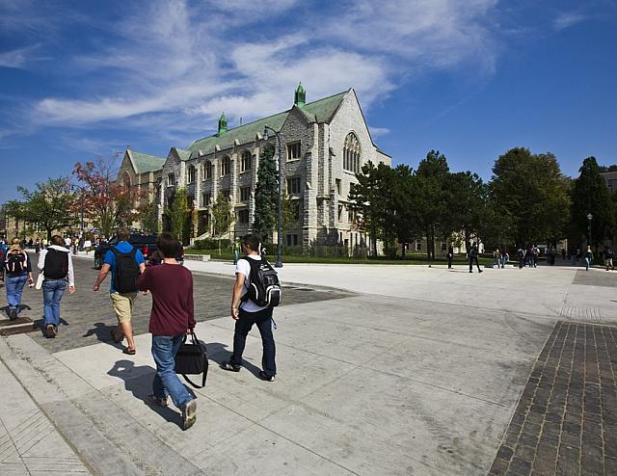Double Degree with Smith School of Business (BLC - DCM)
Option for the Diversity and Change Management Concentration
Why settle for one degree, when you can have two Master of Science degrees from two of of the world's leading universities?
Copenhagen Business School and Stephen J.R. Smith School of Business, Queen’s University in Ontario, Canada are collaborating on an exciting double degree programme for the MSc Business, Language & Culture, Diversity and Change Management (CBS) and the Master of International Business (Queen's), which will provide students with an unparalleled opportunity to experience and graduate from two MSc Programmes. You can see the number of seats available for this agreement by checking on my.cbs.dk. You will need your CBS login to do so.

Pursuing a double degree means that not only will you obtain a Master of Science in Business, Language & Culture from CBS, you will also obtain a Master of International Business (MIB) from Stephen J.R. Smith School of Business.
If you have chosen to pursue the MSc in Business, Language & Culture, concentration in Diversity and Change Management (DCM), you should consider this exciting opportunity. The double degree agreement is exclusive for the DCM concentration.
Eligibility and application
Here you can read more about eligibility requirements and application procedures.
| Double Degree Setup | |
|---|---|
| 1st Year at CBS | 2nd Year at Queen's/CBS |
| 1st and 2nd semesters | 3rd and 4th semesters |
Complete the mandatory courses of the DCM programme |
|
Queen's is one of Canada's leading universities, with an international reputation for scholarship, research, social purpose and spirit. Consistently highly-ranked, Queen's is known for its incomparable 24-hour learning environment. Great teaching, great students, community and tradition - these are the hallmarks of the Queen's experience.
The University was established by Royal Charter of Queen Victoria in 1841 - twenty-six years before Canadian confederation. Classes were first held in 1842. The earliest degree-granting institution in the united Province of Canada, and the first to establish a student government, Queen's has reflected and helped shape Canadian values and policies, educating many of the country's most notable political and cultural figures.
Stephen J.R. Smith School of Business
Stephen J.R. Smith School of Business is one of the world's premier business schools, consistently capturing top international rankings for its programs. The world-class reputation of this small, elite school is a testament to the high quality of its programs, its faculty and its students - who come from Canada and abroad.
Stephen J.R. Smith School of Business is one of a select few schools to be accredited by all three of the world’s leading accrediting bodies. The School is fully accredited by the AACSB (the Association to Advance Collegiate Schools of Business). Reflecting its international strength, Stephen J.R. Smith School of Business is EQUIS accredited through the EFMD (European Foundation for Management Development), a global organization that is a recognized centre of excellence for management education and development in Europe, and the Association of MBAs, an international accrediting body based in the UK.
Master of International Business (MIB)
Queen’s Master of International Business (MIB) is a direct-entry program requiring no previous full-time work experience. The program provides an in-depth examination of international issues ranging from the global economy to cross-cultural leadership. The program curriculum includes examination of global business issues including: the global economy; virtual teams; emerging economies; global logistics.
Integrative learning is an important element in the program. Integration is accomplished in several ways: through significant coordination between course leaders in the areas of course design and delivery, allowing students to relate themes across courses; as well as students’ own experience and lessons learned while on exchange; and through the team-based research project, that provides the opportunity to explore course concepts in more depth as well as apply training on effective cross-cultural teamwork.